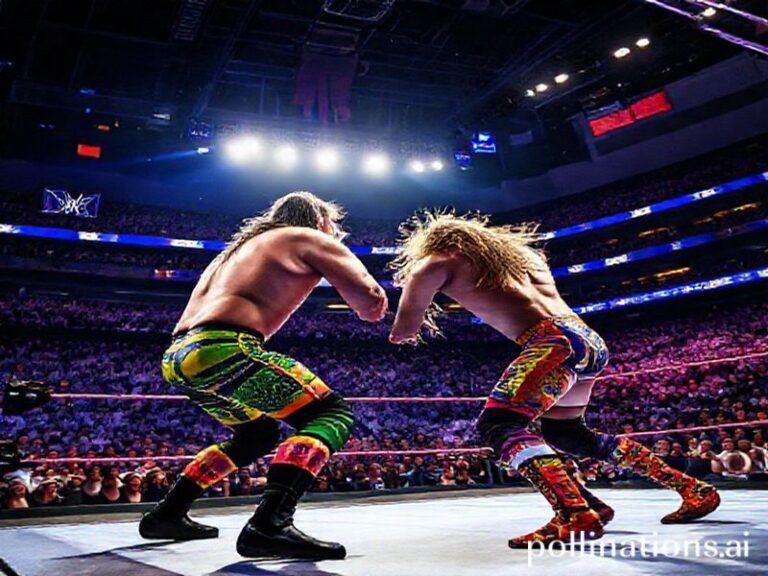Comey Indicted: How the FBI’s Fallen Top Cop Became the World’s Favorite Spectator Sport
LONDON – Somewhere between an espresso and a stiff gin, the news reached Fleet Street: James Comey, the 6-foot-8-inch Boy Scout who once ran the world’s most glamorous police force, has been indicted. The charge sheet, reportedly thicker than the average Brexit impact assessment, alleges he fibbed to Congress, leaked like a post-war British pipe, and generally behaved like a man who skimmed too many spy novels. For the rest of the planet—already dizzy from American self-immolation—the indictment lands with the weary familiarity of yet another Netflix true-crime teaser: “Guess which democracy is cancel-culturing itself this season?”
Abroad, the reaction has been diplomatically polite, the way one nods at a neighbor whose kitchen is on fire. In Brussels, officials muttered about “rule-of-law indices” while secretly updating their EU accession PowerPoints with a new cautionary slide titled “Don’t Do This.” Tokyo’s press club issued a two-line statement, roughly translatable as “Again?”—a syllable that, in Japanese, carries the weight of a thousand facepalms. Meanwhile, in Moscow, champagne remained corked; the Kremlin’s spokesperson simply retweeted an old video of Comey calling Russia “the greatest threat” with the caption, “Threat level: indicted.”
For smaller nations that still use the dollar, the indictment is less a legal event than a weather advisory. When America’s top cop becomes a defendant, emerging markets reach for the same metaphorical umbrella they used during the last debt-ceiling circus. Nairobi stockbrokers call it “the impeachment discount”; Jakarta analysts compare it to monsoon season—predictable, soggy, and terrible for foreign investment. The IMF, ever the calm nurse at the scene of the accident, issued a boilerplate urging “institutional stability,” which is code for “please stop scaring the bond vigilantes.”
Europe, nursing its own populist hangovers, watches with the smug relief of a dieter who just passed on dessert. France’s Le Monde ran a cartoon of Lady Justice wearing American-flag blindfolds—one eye peeking, naturally—while Germany’s Die Zeit published a 4,000-word think piece comparing the Comey saga to Goethe’s Faust, because nothing comforts Germans like turning political chaos into required reading. Across the Channel, Brexit Britain took notes: civil servants highlighted the speed at which a high official can be frog-marched from guardian of democracy to defendant, a scenario Downing Street files under “Helpful Precedents.”
In the global south, the indictment is received with a shrug seasoned by historical déjà vu. Latin American diplomats recall their own generals and judges trading places in the dock, usually after a coup or a U.S.-backed transition. “Welcome to the club,” tweeted a former Argentine prosecutor, attaching a GIF of a revolving door labeled “Justice.” African observers note the irony of Washington lecturing them on prosecutorial independence while live-tweeting its own episode of Law & Order: Special Founding Fathers Unit.
China, ever the opportunist, folded the news into its marathon PowerPoint on the superiority of “socialist rule of law.” State media ran a segment titled “Why Stable Institutions Matter,” illustrated with a cartoon of the Statue of Liberty tripping over her own scales. Behind the propaganda, Beijing’s strategists quietly recalculate: if America keeps devouring its own, the global sheriff’s badge may finally be up for grabs—though whoever pins it on next will inherit a town that shoots its deputies for sport.
And yet, beneath the cynicism lies a kernel of genuine concern. When the former director of the FBI faces jail time, allies wonder what oaths still bind the empire’s spies, soldiers, and accountants. If the referee gets carded, who enforces the rules of the international game? The answer, whispered in chancelleries from Ottawa to Canberra, is unnerving: perhaps no one, and perhaps that’s been the case longer than anyone cared to admit.
So raise a glass—preferably something strong and imported—to the latest installment of the American tragicomedy. The rest of the world will keep watching, partly in horror, partly in relief that, for once, the explosion is happening on someone else’s lawn. Just don’t stand too close; shrapnel travels, and history suggests the next indictment might be wearing your flag.







